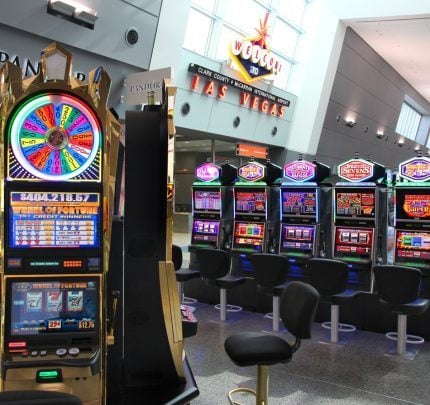VEGAS MYTHS BUSTED: Casinos Loosen Slots Fridays, Tighten Them Sundays
Posted on: September 15, 2025, 07:21h.
Last updated on: September 15, 2025, 09:50h.
- A persistent myth claims that Vegas casinos loosen their slots on Friday and tighten up the payouts on Sundays
- The truth is, casino slots are 100% random and controlled by an algorithm programmed by the machine’s manufacturer
- Slots are further monitored by the Nevada Gaming Control Board to ensure they’re operating fairly and haven’t been tampered with or had their payouts improperly adjusted
Three weeks ago, a Las Vegas subreddit user asked if there was any truth to something his slot-loving buddy told him: “that casinos make them pay out better on Friday so people win and keep playing all weekend and then they pay out less on Sunday so the casino can get back the money before you leave.”

We’ve tackled different variations of this theme before, and the answer is always the same … it’s a myth.
Myths like this persist because humans are so wired to spot patterns, they’ll see them even where none exist. While this instinct helped us track prey on the savannah, it’s the opposite of useful in the casino at Caesars Palace.
Players tend to remember big wins on Friday nights, when the casino is buzzing and more jackpots are hitting all around them because more people are feeding slots. And they’ll recall the sting of losses on quiet Sundays. But the machines themselves never know what day it is.
The Truth
Every slot result is governed by the machine’s random number generator (RNG), which selects a number sequence that maps to reel positions. This process is entirely random and independent of previous spins. There’s no memory, no pattern, no adjustments based on day of the week or whether a player pulls a physical lever or remembered to bring his lucky rabbit’s foot.

For a simple slot, if a jackpot symbol appears on one reel 1 in 100 times, and on another reel 1 in 1000 times, then the odds of hitting both are 1 in 100K. Modern slots often use complex algorithms with multiple reels, paylines, and virtual stops, but the results are still 100% random.
How can the results be truly random if a house edge exists?
The edge is baked into the payout structure, not the RNG’s randomness. The game’s paytable is designed so that, over millions of spins, the casino retains a predictable percentage of all wagers.
If a slot has a 96% return-to-player (RTP) average, it’s designed to return $96 for every $100 wagered — on average, over time. The remaining $4 is the house edge.
But the result of each individual spin is still randomly determined.
Casinos can’t casually tweak RTPs to manipulate payouts. Individual slot machines are programmed by game developers, certified by independent labs, and monitored by gaming regulators for compliance with legal standards. Any RTP adjustments to individual slots require regulatory approval and can’t be performed on a whim by casino staff members.
While monitoring each of the state’s 165K slot machines regularly is unrealistic, the Nevada Gaming Control Board’s Enforcement Division conducts random audits to ensure compliance. It also requires casinos to maintain detailed records of slot machine performance, including payouts and win percentages, which it reviews regularly.
So, there’s no incentive for casinos to risk their gaming licenses to cheat players when they’re already doing it with the house edge.
Look for “Vegas Myths Busted” every Monday on Casino.org. Click here to read previously busted Vegas myths. Got a suggestion for a Vegas myth that needs busting? Email corey@casino.org.
Last Comment ( 1 )
I know that's true, and you know that's true, but you'll never convince the "Auntie Rita's" of the world that there's someone sitting in the back room that flips a magic switch to determine who is and who isn't going to win. "The whole thing's rigged, and nothing you say is going to convince me otherwise."